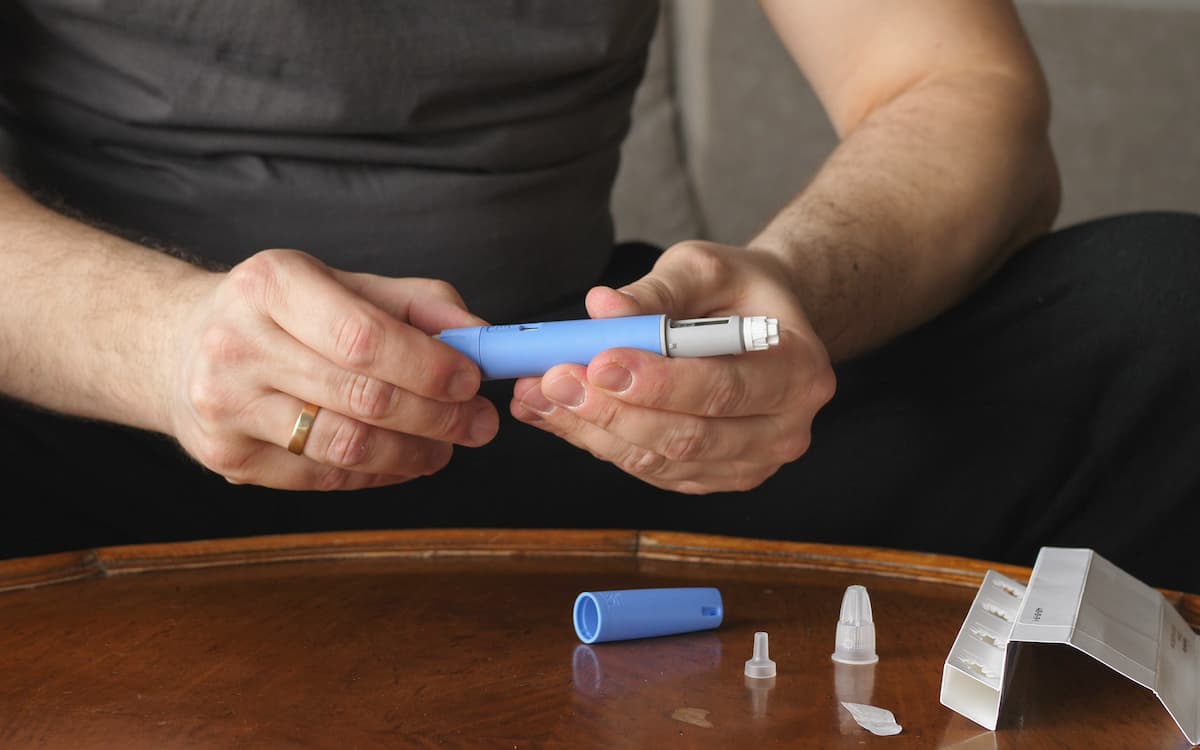- Clinical Technology
- Adult Immunization
- Hepatology
- Pediatric Immunization
- Screening
- Psychiatry
- Allergy
- Women's Health
- Cardiology
- Pediatrics
- Dermatology
- Endocrinology
- Pain Management
- Gastroenterology
- Infectious Disease
- Obesity Medicine
- Rheumatology
- Nephrology
- Neurology
- Pulmonology
FDA Warns Clinicians of Adverse Events due to Overdosing of Compounded Semaglutide
Lack of dosing experience and errors with converting measurement units may lead to overdosing, the agency reported.

The US Food and Drug Administration (FDA) is warning health care professionals, compounders, and patients about reports of adverse events, some requiring hospitalization, possibly related to overdoses of semaglutide due to dosing errors associated with compounded formulations of the injectable medication.
In a July 26, 2024, alert, the FDA said it has received reports of dosing errors from both clinicians and patients related to compounded semaglutide injectable products. The errors may have resulted from a lack of experience among patients with measuring and self-injections and among health care professionals miscalculating doses of the drug, according to the agency.
Some individuals sought medical attention or required hospitalization following incorrect dosing of the compounded medication. Adverse events reported to the FDA included gastrointestinal events (eg, nausea, vomiting, abdominal pain), fainting, headache, migraine, dehydration, acute pancreatitis, and gallstones.
Errors tied to incorrect measurement. The FDA said that most reports it received explained that patients had mistakenly drawn up more than the prescribed dose of compounded semaglutide from a multiple-dose vial during self-administration. Patients reported administering 5- to 20-times more than the prescribed dose, and a majority of the reports indicated that users were unfamiliar with how to measure the intended dose using a syringe. For example, in several reports, patients were instructed to use a U-100 (1 milliliter [mL]) insulin syringe to draw a small dose (ie, a 5-unit [0.05 mL] dose) from a multiple-dose vial. Patients mistakenly administered 50 units instead of the recommended 5 units. In addition, 1 report showed it was difficult for the patient to clarify dosing instructions during a telemedicine visit with the prescribing clinician. A subsequent search online for medical advice resulted in the patient taking 5-times the intended dose.
Errors associated with dose miscalculations. According to the FDA alert, in several of the reports, health care professionals had incorrectly calculated the intended medication dose when converting from milligrams (mg) to units or mL. This led to some patients administering 5- to 10-times the intended dose of compounded semaglutide. Among the reports, the following events were described:
- A clinician prescribed 25 units instead of the intended dose of 5 units (0.25 mg), which caused the patient to experience severe vomiting.
- A clinician prescribed 20 units instead of the intended 2 units, affecting 3 patients who reported nausea and vomiting.
- An individual who was also a health care professional tried to recalculate their own dose in units and inadvertently self-administered a dose 10-times higher than originally planned.
The FDA noted that compounded semaglutide products pose a higher risk to patients than FDA-approved drugs because compounded medications do not undergo FDA premarket review for safety, effectiveness, or quality. Therefore, compounded drugs should only be used to meet a patient’s needs if the patient’s medical needs cannot be met by an available FDA-approved drug.
In the alert, the FDA urged clinicians and compounders to provide patients with the correct syringe size for the intended dose and educate them on how to measure the intended dose. The agency also said clinicians should be vigilant when prescribing and administering compounded semaglutide products due to different available concentrations. If clinicians are uncertain, they should contact the compounder about calculating the correct dose to prescribe or administer.
For patients, the FDA stated they should speak with their health care professional about how to measure and administer the right dose of compounded semaglutide.
Patients, health care professionals, and compounders are asked to report adverse events and medication errors associated with compounded semaglutide to the FDA’s MedWatch Adverse Event Reporting program by submitting a report online at https://www.fda.gov/safety/medwatch-fda-safety-information-and-adverse-event-reporting-program or submitting the form at https://www.fda.gov/media/85598/download?attachment and faxing it to the FDA at 1-800-FDA-0178.
Reference: FDA alerts health care providers, compounders and patients of dosing errors associated with compounded injectable semaglutide products. US Food and Drug Administration. News item. July 26, 2024. Accessed July 20, 2024. https://www.fda.gov/drugs/human-drug-compounding/fda-alerts-health-care-providers-compounders-and-patients-dosing-errors-associated-compounded
AI-Powered Diabetes Prevention Program Intervention Matches Human Coaching in Landmark Trial
October 27th 2025After 1 year of coaching by the AI app or a DPP-associated coach, reductions in weight and HbA1c and increases in physical activity were equal, an outcome with great promise for scalability.
